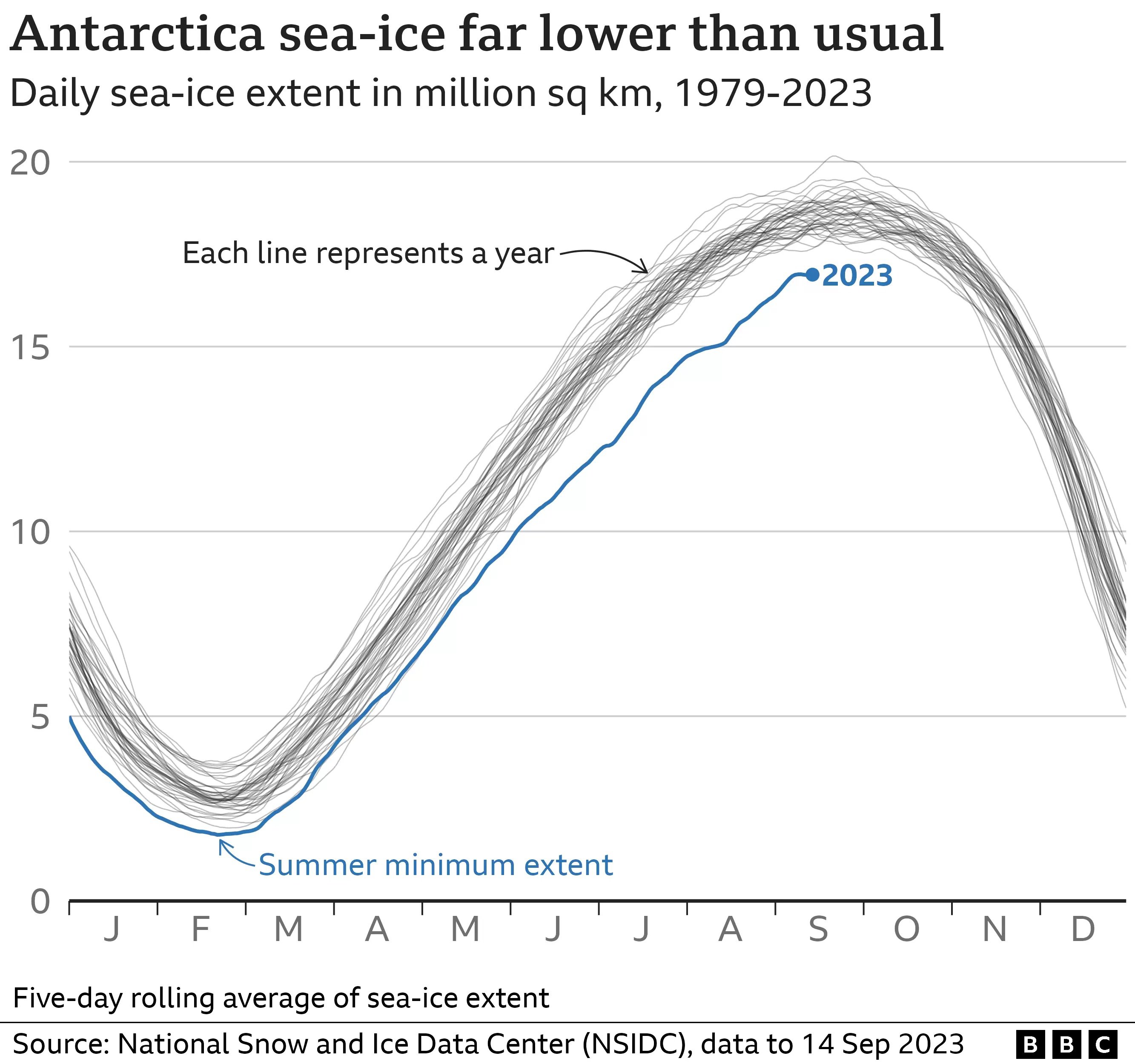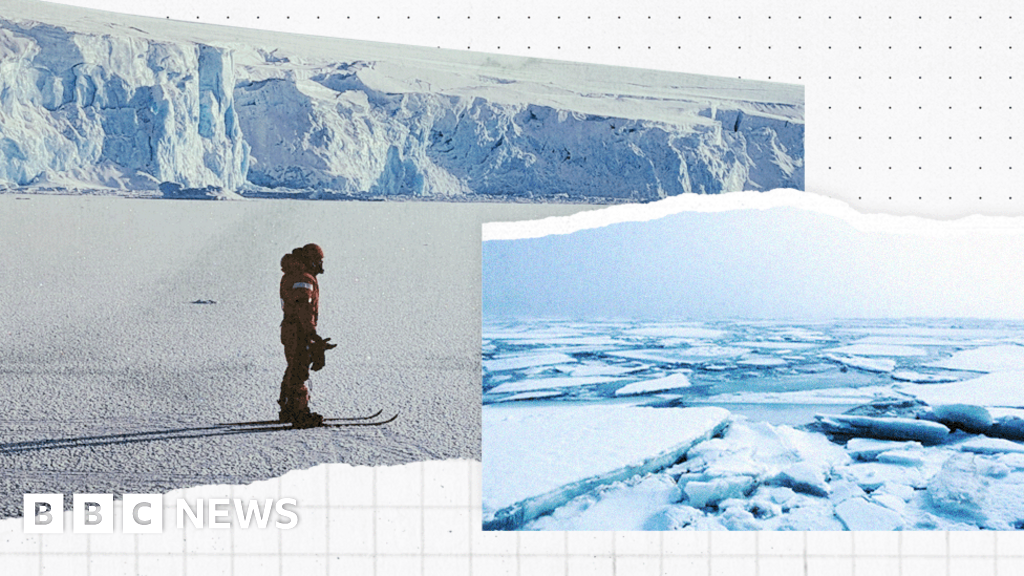And yet the governments whose officials we’ve elected into office, having no better options, aren’t doing anything about it because the companies they’ve enabled to cause the problems we face keep taking them out to a fancy dinner every now and then.
I think the Simpsons quote is:
we’ve tried nothing and we’re all out of ideas
This is the best summary I could come up with:
The sea-ice surrounding Antarctica is well below any previous recorded winter level, satellite data shows, a worrying new benchmark for a region that once seemed resistant to global warming.
Antarctica’s huge ice expanse regulates the planet’s temperature, as the white surface reflects the Sun’s energy back into the atmosphere and also cools the water beneath and near it.
Dr Caroline Holmes at the British Antarctic Survey explains that the impacts of shrinking sea-ice may become evident as the season transitions to summer - when there’s potential for an unstoppable feedback loop of ice melting.
As more sea-ice disappears, it exposes dark areas of ocean, which absorb sunlight instead of reflecting it, meaning that the heat energy is added into the water, which in turn melts more ice.
There are signs that what is already happening to Antarctica’s ice sheets is in the worst-case scenario range of what was predicted, says Prof Anna Hogg, an Earth scientist at the University of Leeds.
At the scientific base Rothera, Dr Mallet is using radar instruments to study sea-ice thickness for an international research project called Defiant.
The original article contains 905 words, the summary contains 183 words. Saved 80%. I’m a bot and I’m open source!
Hi, these are not news.
It’s been told a few years already.
Nothing’s new here.

Prior years were bad, but this is different
Guess what’s going to be next year
Arctic ice has been trending lower and lower basically since they started tracking it in 1979.
Antarctic ice, on the other hand, didn’t have any such trend until recently. The previous record low and record high were both in the last decade. But the last few years have all been on the low end and setting new records and then this year is an unprecedented low in Antarctica, as that other graph shows.
Now it could be an outlier rather than a new trend. The Arctic had one of those in 2012 and we still haven’t broken that record low. So there is a bit of “wait and see” to this. Only if it is the bad case, we can’t wait to see before we act, and if it is the good case, it doesn’t mean no action is needed. We should be making big changes to our way of life at a societal level.
coldvbad warm nice 🙏





